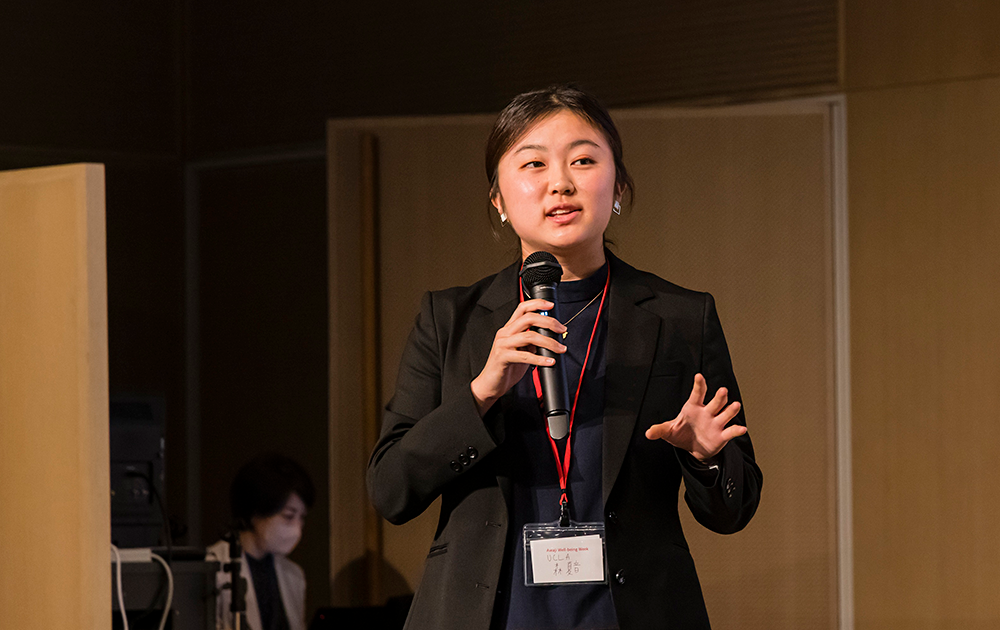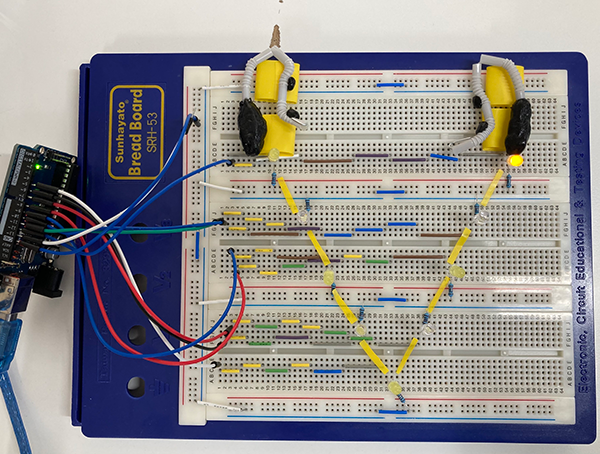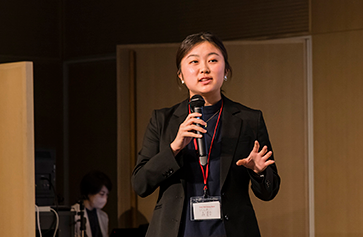Leading the Japan-America Innovators of Medicine
UCLA student Kanon Mori works to improve health care while bridging cultures and disciplines

Lucy Berbeo | January 12, 2023
Many students embark on their college journey with the goal of finding a true sense of purpose. Kanon Mori found hers during her first year at UCLA — and spent her time as an undergraduate bringing that purpose to fruition.
Born in Los Angeles to parents from Japan, Mori grew up bilingual and passionate about bridging Japanese and U.S. culture. Excelling in STEM and interested in medicine, she chose to major in computational and systems biology, an interdisciplinary program in the UCLA College that trains students to solve biological problems by combining the sciences, math and computing.
In classes on public health and health policy, Mori learned about inequities in the U.S. health care system and decided to help change things on a global scale. “I realized the potential technological innovations can have to shake up the entire industry,” says Mori, who is set to graduate this June. “And UCLA is the gateway into the U.S. from Japan’s perspective. With its world-class medical research and technological innovations, I knew I had to take advantage of being a student here to initiate a project.”
Mori teamed up with students from Stanford University and medical schools in Japan, including those at the University of Tokyo, Osaka University and Kyoto University. Together, with support from academic institutions, companies and individuals, they spearheaded Japan-America Innovators of Medicine, or JAIM — a student-driven, entrepreneurial effort to tackle the global health care challenge of dementia and to foster U.S.-Japan collaboration in advancing medicine.
Dementia, including Alzheimer’s disease, is on the rise worldwide and especially in Japan, where more than a quarter of the population is 65 or older. JAIM leaders, including Mori and her counterparts at Stanford and Osaka, recruited nine students from Stanford and UCLA to participate in training bootcamps, then flew them to Japan to visit dementia care settings, observe the need firsthand and generate solutions. Returning to the U.S., the students spent the next four months working under JAIM supervision to develop prototype medical devices aimed at helping dementia patients and caregivers worldwide. By addressing the urgent need in Japan, JAIM aims to create solutions before the problem becomes severe in nations like the U.S.

REMBUDS, one of the prototype medical devices created by JAIM participants, were designed to electrically stimulate the transcutaneous auricular vagus nerve and reduce sleep-related injuries in Lewy Body dementia patients with REM sleep behavior disorder.
The rigorous program’s success, Mori says, owes much to the drive and dedication of everyone involved. “We all poured our passions into this project,” she says. “Each one of us brought our own respective strengths to the table, and we all had an unwavering confidence that what we were doing was valuable to the world.”
Since completing their prototypes in November, several participants have presented and garnered interest at national and international conferences. In February, Mori says, JAIM will attend the UCLA MedTech Partnering Conference hosted by the UCLA Technology Development Group in order to seek mentorship and resources to launch their prototypes into production.
Mori describes leading JAIM as “challenging to say the least” — she and her team spent a year developing the program, which she says felt like running a startup in addition to being a full-time student — but found it incredibly fulfilling.
“My life mission is to bridge Japan and the U.S. by connecting resources and people in the field of medicine,” she says. “And entrepreneurship is fascinating to me — through the many failures and the endless uphill battle, I feel most alive.”
The same spirit drives Mori’s winning efforts as part of UCLA’s triathlon team. “You can find us gasping for air while inching our way up the steep hills of Malibu with our road bikes on an early Saturday morning, or charging into the crashing waves of Santa Monica to practice open water swimming before heading back to campus for class,” she says. “It’s a group of fit, quirky and driven people who make the challenging sport of triathlon into an enjoyable one.”
Mori’s ultimate goal, she says, is to develop a product or service that will make health care more accessible, affordable and efficient through technological innovation in business. She envisions herself working as a product manager, international business development manager or possibly even the creator of her own startup. For now, as she finishes senior year, she’s enjoying the many opportunities UCLA has to offer.
“There really is no place like it,” she says. “It’s so exciting to be here, just imagining what can start up in such an environment. I’m grateful for every professor, expert and fellow student who has changed my life in a profound way.”
For more of Our Stories at the College, click here.




